Photographs: Uttam Ghosh/Rediff.com M R Venkatesh
In this three-part series, I have attempted to put forth my views on corruption and its impact on Brand India (Part I) as well as point out how corruption and the resultant capital flight has a debilitating impact in our war on poverty (Part II).
But there is a third dimension -- the security issue, which I debate in this third and final part.
It was only recently that a prominent television anchor from a popular news channel interviewed Julian Assange of Wikileaks. Assange confessed that he has a CD containing a list of account holders in a Swiss bank. And that, according to him, included several Indian names.
As the nation awaits some damning revelations through Wikileaks, one is increasingly getting a feeling that all is not well in the secret world of tax havens and numbered accounts.
Post the global financial crisis of 2008-09, several countries have been able to get the details about the accounts of their rich and famous in some tax havens.
. . .
How corruption threatens India's security
Photographs: Reuters
For instance, as recently as in July 2010, the Wall Street Journal carried a story of this data being available to certain individuals. As per this account, Herve Falciani, a former HSBC bank official, along with a colleague, Georgina Mikhael, rocked the financial world by claiming possession of information about thousands of Swiss banking customers from about 180 nations.
This information is now in the possession of the French government, which has offered the data to any country that is in pursuit of its tax cheats.
The report points out that Spain, Italy and Germany have obtained their share of the data. Intriguingly, there is no mention of India.
But what must agitate the collective conscience of the nation is that such data is increasingly available in private hands. What if such data is traded for a few dollars by such individuals with forces inimical to the country?
Surely, the potential for mischief in such cases is immense. Yet, this is one issue about tax havens that seems to have escaped the attention of most analysts, political parties and the media.
. . .
How corruption threatens India's security
Photographs: Reuters
Strangely, despite these developments with regard to getting information from tax havens, we seem to be in a self-denial mode. Information of accounts in tax havens of Indians in high places could have profound implications on the security of India.
It is only a matter of time before a numbered account of a prominent Indian in a tax haven finds its way to the hands of Chinese, American or Pakistani intelligence.
That opens up a huge potential for blackmail and compromise and could well determine the manner in which we conduct future negotiations with the Chinese on the border dispute or with the Pakistanis on the complex Kashmir issue or with the Americans on the complicated nuclear issue. In all these future negotiations, we could well end up second best.
United Colours of Corruption
Commenting on the issue of corruption, Rajinder Puri, a senior political columnist, in one of his columns wrote: 'The worst aspect of the Bofors case was not its corruption. Corruption in varying degrees is worldwide. The worst aspect was the cover-up of the corruption. Cover-ups too happen worldwide. But nowhere are they as brazen and shameless as they are in India. Bofors set a new standard of shamelessness. After the Bofors case, there followed a whole stream of scandalous crimes that were consistently covered up, with equal shamelessness. HDW submarine case, Jain hawala case, Oil for Food scam -- there is a long list of scandals covered up with contempt for public opinion. The politicians, the investigators, the judiciary and the media all got badly tainted in this process.'
. . .
How corruption threatens India's security
Photographs: Reuters
Puri perhaps is still living in the past. The collective conscience of the nation got agitated for a mere Rs 64 crore (Rs 640 million). That was in the mid-eighties. In the ensuing general elections, corruption was the main issue, with Bofors dominating the political discourse along with few other scandals.
And that was sufficient to bring down the Rajiv Gandhi government in 1989. Allowing for the time value of money and the devaluation of the Indian rupee against the US dollar, that could at best be Rs 1,000 crore (Rs 10 billion) in today's prices.
But strangely, today's scams run into several thousands of crore (billions). Interestingly, while the entire opposition thought corruption to be a serious issue in the eighties, it is strangely silent on the issue of corruption now.
The media that aroused the collective conscience of the nation on the issue of corruption is inexplicably quiet on these issues today. The response of our 'intellectuals', who voiced concerns about corruption in high places then, is muted this time around.
. . .
How corruption threatens India's security
Photographs: Reuters
It is, indeed, a remarkable coincidence that since the 1989 general elections, corruption has ceased to be a prime election issue.
This muted response by the government, the opposition, the media and our intellectuals is indeed intriguing.
There is yet another angle to this story. Replying to the discussion on the motion of thanks to the President for her address in March 2010 to both Houses of Parliament, the prime minister stated that while no official data is available on the quantum of slush funds, it is estimated that such black money stashed away by Indian nationals in tax havens overseas could be worth nearly $140 billion.
Now how come the government arrived at this conclusion? What was the source that propelled the government to point out to a neat sum of money?
Crucially, what steps has the government taken to recover the said money from these tax havens? The answers, as usual, remain inconclusive.
. . .
How corruption threatens India's security
Photographs: Reuters
For some inexplicable reason, successive Indian governments are endlessly in a denial mode on the very existence of this Indian wealth in tax havens. At least, this admission of the prime minister puts the matter to rest.
It may be noted that against the estimates of this loot being to the order of $1.4 trillion by various economists, the figures of the government are a mere fraction of that amount.
However, this debate, unfortunately, is not related merely to the extent of the loot stashed in tax havens abroad. If the money does exist -- and it does, as affirmed by the prime minister -- and data on the same is available, there are good chances that such data could find its way into the hands of forces inimical to the sovereignty of India.
It could be a secret now but for how long? Obviously, we need to act quickly. And in these matters, there is no scope for being secretive unless, of course, the government has some vested interest in doing so.
Naturally, all these issues raise profound questions relating to national security and, of course, the possibility of some foreign powers blackmailing the high and mighty of the land with respect to their accounts in tax havens.
. . .
How corruption threatens India's security
Photographs: Reuters
It is in this connection that one may note that the government affirmed to the Supreme Court that it had received the information about the LGT Bank from the German authorities on March 18, 2009. Two years later, not much action is visible on this account except that income tax notices have been issued.
Light, sound and inaction
Putting the matter in the right perspective Rajinder Puri states, 'The finance ministry had claimed that it was trying to recover black money stashed abroad. But its actions belied its words. The German government had given a list of names of Indians whose money is lying in the LGT Bank of Liechtenstein. The Indian government refused to disclose the names provided by Germany. It claimed that it was prevented by certain legal hurdles put up by Germany. Did the finance ministry deliberately create those legal hurdles? Germany itself has released its own list. How can it prevent India from releasing the list which it provided to India?' Incisive questions all.
It is indeed inexplicable as to why the government is keen on not publishing the names of those in the said disc provided by the Germans. But the government has neatly sidestepped these questions and has come up with its own fuzzy logic, save, of course, for its admission of $140 billion in tax havens.
Naturally, all these have right thinking citizens of the country worried. Indian money in tax havens poses new security risks to India. It is time we recognise this. If we do not act now, our opponents will.
That may have a debilitating impact on the integrity of the country, its economy and security. Strangely, the government seems to be acting at a glacial pace. Inexplicably, the opposition seems to be playing ball with the government.
. . .
How corruption threatens India's security
Photographs: Reuters
The media and the intelligentsia all seem to be in a suspended sense of disbelief on these matters of vital importance.
Obviously, it is a terrible mess out there. The government must act, and act forthwith. It cannot diffuse the matter any longer. The reply of the government to the PIL filed in the Supreme Court is an empty exercise in semantics and a complete one in obfuscation, little realising the grave security threat posed by such money parked by our elites in these tax havens.
All these discussions open up several questions: Was our nuclear deal done under some threat by the American intelligence? What if the Chinese have access to these data? In such a case what would be the fate of our negotiations with the Chinese?
What if the ISI has such details and is bartering the tacit complicity of someone very high in our security establishment while plotting a terrorist attack on our soil?
It is time that the nation responds to these security threats at the earliest.
The author is a Chennai-based chartered accountant. He can be contacted at mrv@mrv.net.in


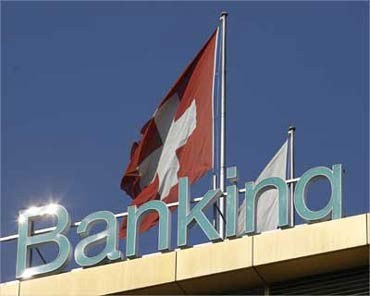
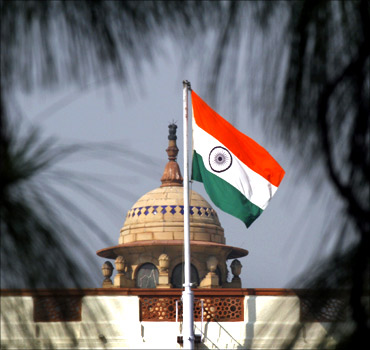

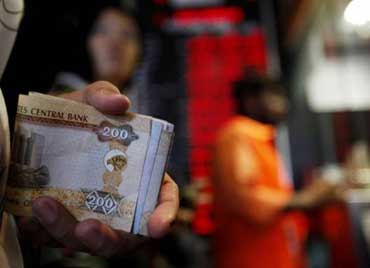

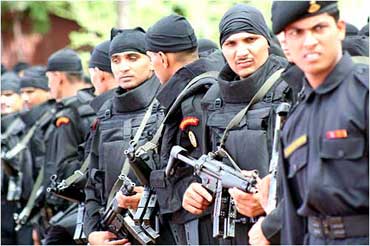
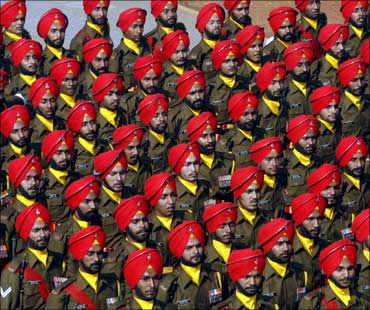
article